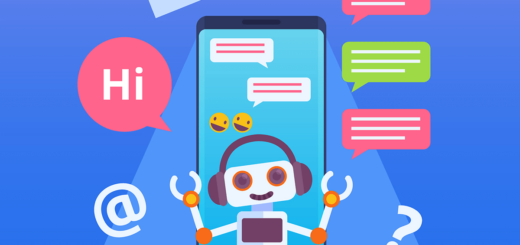AI-Powered Hiring Platforms Transform Recruitment Processes

Recruiting the right talent has always been a challenge for businesses, requiring time-consuming candidate screening, multiple interview rounds, and extensive decision-making processes. However, in January 2024, AI-driven hiring platforms were redefining recruitment by streamlining hiring decisions, improving candidate evaluations, and reducing biases in selection.
With advancements in AI-powered applicant tracking systems (ATS), machine learning-based candidate scoring, and automated video interview analysis, companies began leveraging AI to optimize hiring workflows and make data-driven talent acquisition decisions. These tools weren’t just filtering resumes anymore; they were assessing cultural fit, predicting job performance, and personalizing the recruitment experience for both employers and candidates.
How AI Was Transforming the Hiring Process
Traditional recruitment relied on manual resume screening, generic job postings, and subjective decision-making, often leading to lengthy hiring cycles and inefficient candidate evaluations. AI-powered recruitment tools introduced a new level of precision and automation, enabling companies to:
- Use AI-driven resume parsing – Advanced models quickly analyzed applications, identifying the most qualified candidates based on job requirements.
- Enhance interview processes with AI analysis – AI-assisted video interviews could evaluate speech patterns, sentiment, and body language to assess soft skills and engagement levels.
- Predict candidate success – Machine learning algorithms helped forecast a candidate’s likelihood of success in a role, improving long-term hiring decisions.
These improvements significantly reduced hiring time and improved the accuracy of talent acquisition strategies.
Industries Rapidly Adopting AI in Recruitment
AI-driven hiring platforms were being integrated across various industries where efficient talent acquisition was critical for business success.
1. AI in Corporate Hiring and HR Management
- Large enterprises utilized AI-powered HR chatbots to automate candidate engagement, schedule interviews, and answer applicant inquiries.
- AI-driven onboarding systems customized training programs and personalized learning paths for new hires, improving retention.
2. AI in Tech and Startup Recruitment
- Fast-growing startups relied on AI-powered coding assessments and automated technical interview evaluations to hire engineers efficiently.
- AI-assisted recruitment tools identified high-potential candidates even if they didn’t have traditional credentials, widening the talent pool.
3. AI in Healthcare and Specialized Roles
- AI-driven hiring platforms helped healthcare providers match doctors and nurses with the right hospitals and facilities based on skill sets and location needs.
- Automated systems ensured regulatory compliance in hiring for highly specialized fields, reducing legal risks.
By leveraging AI, businesses across industries were making smarter hiring decisions while improving candidate experiences.
Challenges and Ethical Considerations in AI-Driven Hiring
Despite its benefits, AI-powered recruitment faced significant challenges and ethical dilemmas that companies needed to address.
1. Bias and Fairness in AI Hiring Models
- AI algorithms trained on biased hiring data could unintentionally favor certain demographics, leading to discrimination concerns.
- HR teams had to actively audit and fine-tune AI models to ensure fairness in candidate evaluations.
2. Data Privacy and Compliance Risks
- AI-driven hiring tools collected large volumes of personal candidate data, raising concerns about data security and compliance with privacy laws.
- Companies needed strict data governance policies to prevent misuse of candidate information.
3. Over-Reliance on AI in Decision-Making
- While AI streamlined hiring, removing human oversight entirely from recruitment decisions could lead to inaccurate assessments of candidate potential.
- Businesses had to strike a balance between automation and human intuition, ensuring AI served as an enhancement rather than a replacement for HR professionals.
Addressing these challenges was essential for building trust in AI-powered hiring and ensuring ethical recruitment practices.
What’s Next for AI in Recruitment?
As AI-powered hiring platforms continued to evolve, the next stage of advancements was expected to include:
- AI-generated personalized career path recommendations – AI would guide job seekers toward roles best suited for their long-term professional growth.
- Voice and emotion analysis in virtual interviews – AI tools would evaluate tonality, enthusiasm, and engagement levels to assess cultural fit.
- AI-powered team compatibility predictions – Advanced models would analyze team dynamics and suggest candidates who would integrate well with specific company cultures.
These innovations were set to make recruitment smarter, faster, and more candidate-focused, redefining talent acquisition in the years ahead.
A New Era in Talent Acquisition
The rise of AI-driven hiring platforms in January 2024 marked a significant shift in how businesses approached recruitment, reducing hiring biases, improving efficiency, and enhancing candidate engagement.
However, as AI-powered hiring tools became more prevalent, companies needed to ensure transparency, fairness, and compliance with ethical AI standards. The future of recruitment wasn’t just about automation—it was about enhancing human decision-making with AI-driven intelligence.




